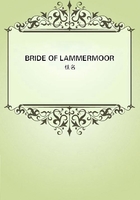
第104章
"That's a fresh and full-grown hemlock, Annie Winnie; mony a cummer lang syne wad hae sought nae better horse to flee over hill and how, through mist and moonlight, and light down in the the King of France's cellar.""Ay, cummer! but the very deil has turned as hard-hearted now as the Lord Keeper and the grit folk, that hae breasts like whinstane. They prick us and they pine us, and they pit us on the pinnywinkles for witches; and, if I say my prayers backwards ten times ower, Satan will never gie me amends o' them.""Did ye ever see the foul thief?" asked her neighbour.
"Na!" replied the other spokeswoman; "but I trow I hae dreamed of him mony a time, and I think the day will come they will burn me for't. But ne'er mind, cummer! we hae this dollar of the Master's, and we'll send doun for bread and for yill, and tobacco, and a drap brandy to burn, and a wee pickle saft sugar;and be there deil, or nae deil, lass, we'll hae a merry night o't."Here her leathern chops uttered a sort of cackling, ghastly laugh, resembling, to a certain degree, the cry of the screech-owl.
"He's a frank man, and a free-handed man, the Master," said Annie Winnie, "and a comely personage--broad in the shouthers, and narrow around the lunyies. He wad mak a bonny corpse; I wad like to hae the streiking and winding o' him.""It is written on his brow, Annie Winnie," returned the octogenarian, her companion, "that hand of woman, or of man either, will never straught him: dead-deal will never be laid on his back, make you your market of that, for I hae it frae a sure hand.""Will it be his lot to die on the battle-ground then, Ailsie Gourlay? Will he die by the sword or the ball, as his forbears had dune before him, mony ane o' them?""Ask nae mair questions about it--he'll no be graced sae far,"replied the sage.
"I ken ye are wiser than ither folk, Aislie Gourlay. But wha tell'd ye this?""Fashna your thumb about that, Annie Winnie," answered the sibyl, "I hae it frae a hand sure eneugh.""But ye said ye never saw the foul thief," reiterated her inquisitive companion.
"I hae it frae as sure a hand," said Ailsie, "and frae them that spaed his fortune before the sark gaed ower his head.""Hark! I hear his horse's feet riding aff," said the other;"they dinna sound as if good luck was wi' them.""Mak haste, sirs," cried the paralytic hag from the cottage, "and let us do what is needfu', and say what is fitting; for, if the dead corpse binna straughted, it will girn and thraw, and that will fear the best o' us."Ravenswood was now out of hearing. He despised most of the ordinary prejudices about witchcraft, omens, and vaticination, to which his age and country still gave such implicit credit that to express a doubt of them was accounted a crime equal to the unbelief of Jews or Saracens; he knew also that the prevailing belief, concerning witches, operating upon the hypochondriac habits of those whom age, infirmity, and poverty rendered liable to suspicion, and enforced by the fear of death and the pangs of the most cruel tortures, often extorted those confessions which encumber and disgrace the criminal records of Scotland during the 17th century. But the vision of that morning, whether real or imaginary, had impressed his mind with a superstitious feeling which he in vain endeavoured to shake off. The nature of the business which awaited him at the little inn, called Tod's Hole, where he soon after arrived, was not of a kind to restore his spirits.
It was necessary he should see Mortsheugh, the sexton of the old burial-ground at Armitage, to arrange matters for the funeral of Alice; and, as the man dwelt near the place of her late residence, the Master, after a slight refreshment, walked towards the place where the body of Alice was to be deposited. It was situated in the nook formed by the eddying sweep of a stream, which issued from the adjoining hills. A rude cavern in an adjacent rock, which, in the interior, was cut into the shape of a cross, formed the hermitage, where some Saxon saint had in ancient times done penance, and given name to the place. The rich Abbey of Coldinghame had, in latter days, established a chapel in the neighbourhood, of which no vestige was now visible, though the churchyard which surrounded it was still, as upon the present occasion, used for the interment of particular persons.
One or two shattered yew-trees still grew within the precincts of that which had once been holy ground. Warriors and barons had been buried there of old, but their names were forgotten, and their monuments demolished. The only sepulchral memorials which remained were the upright headstonres which mark the graves of persons of inferior rank. The abode of the sexton was a solitary cottage adjacent to the ruined wall of the cemetery, but so low that, with its thatch, which nearly reached the ground, covered with a thick crop of grass, fog, and house-leeks, it resembled an overgrown grave. On inquiry, however, Ravenswood found that the man of the last mattock was absent at a bridal, being fiddler as well as grave-digger to the vicinity. He therefore retired to the little inn, leaving a message that early next morning he would again call for the person whose double occupation connected him at once with the house of mourning and the house of feasting.
An outrider of the Marquis arrived at Tod's Hole shortly after, with a message, intimating that his master would join Ravenswood at that place on the following morning; and the Master, who would otherwise have proceeded to his old retreat at Wolf's Crag, remained there accordingy to give meeting to his noble kinsman.